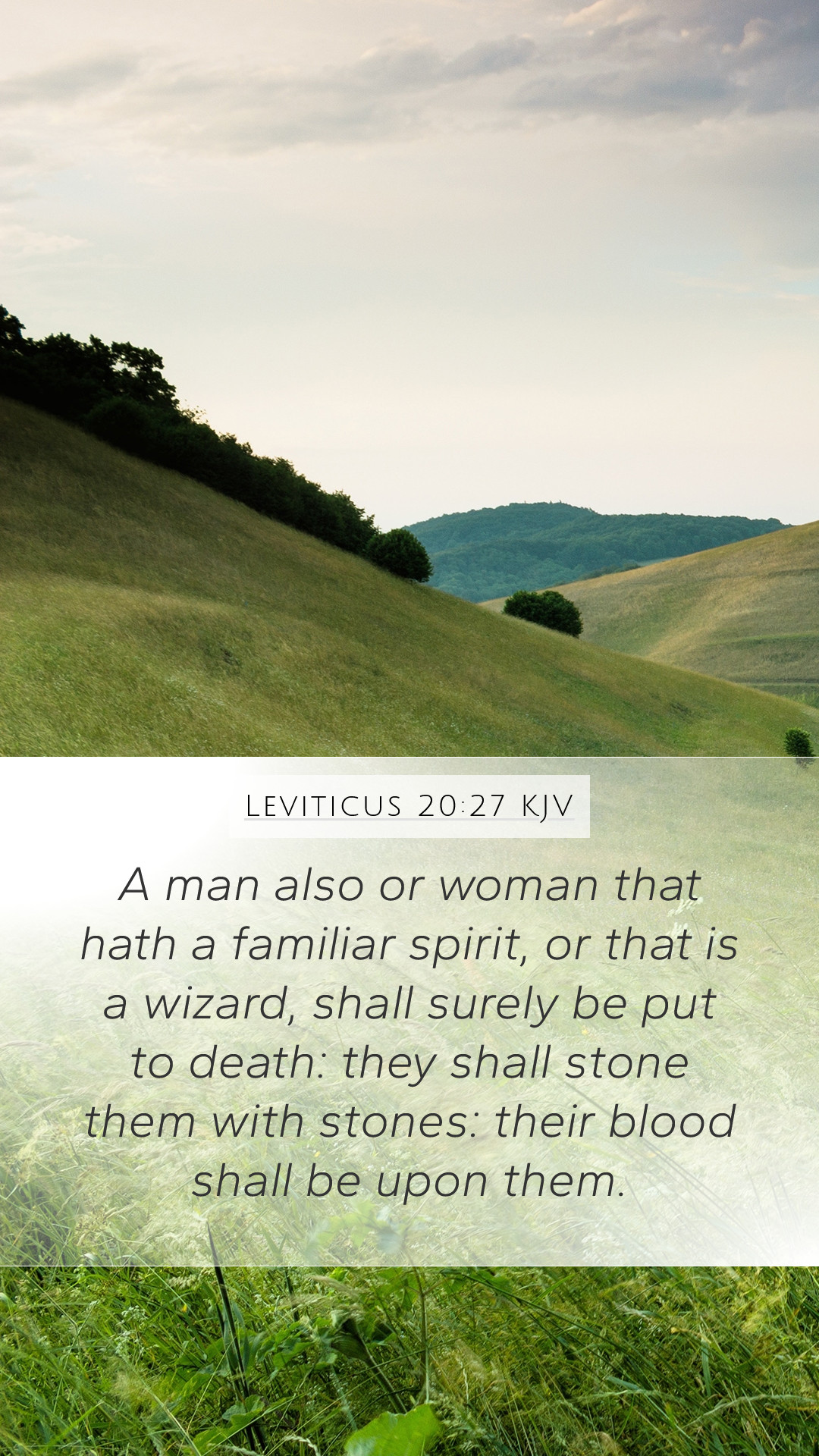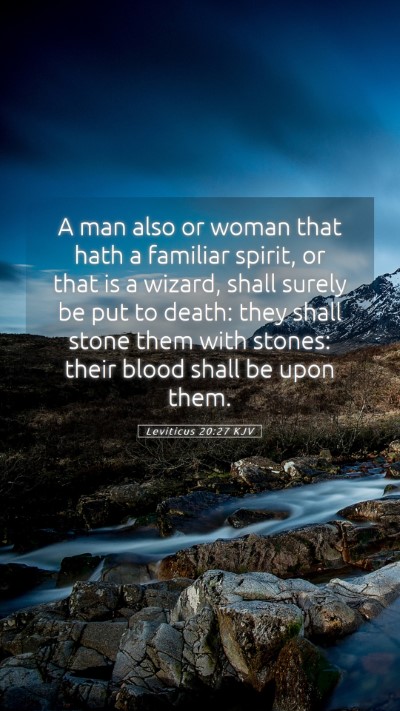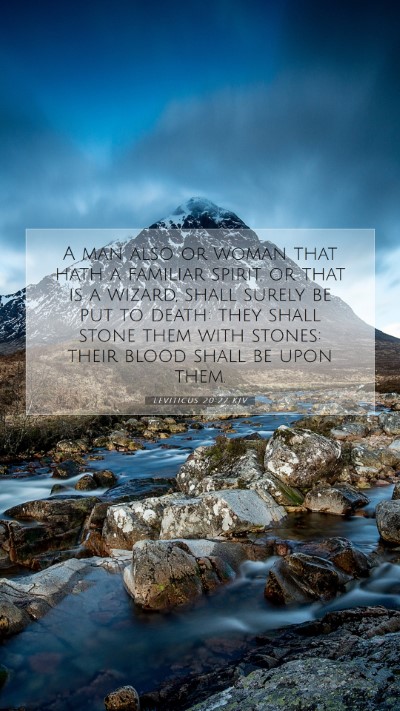Bible Verse Commentary: Leviticus 20:27
Verse: "A man also, or woman that hath a familiar spirit, or that is a wizard, shall surely be put to death: they shall stone them with stones: their blood shall be upon them."
Understanding Leviticus 20:27
This verse addresses the severe prohibition against necromancy, witchcraft, and other forms of spiritual divination deemed unholy by the Mosaic Law. It emphasizes the seriousness of engaging with forbidden practices that attempt to contact the dead or the spirit world.
Bible Verse Meanings
Leviticus 20:27 not only delineates a clear punishment for those engaging in such practices—death, through stoning—but also illustrates the gravity of sin in relation to God’s commandment. The strictness of this law reflects a community's need to remain pure and dedicated to the worship of Yahweh, free from outside influence.
Insight from Commentaries
-
Matthew Henry:
Henry notes the gravity with which the Lord regards practices that involve consulting spirits or performing sorcery. He points out that these actions violate the sanctity of God’s covenant and lead the people away from true worship, presenting a danger not only to individuals but to the entire community. Thus, the punishment serves both as a deterrent and as a means to preserve communal holiness.
-
Albert Barnes:
Barnes emphasizes that the "familiar spirit" refers to a medium who claims to communicate with the dead. He explains that the practice was widespread among neighboring pagan nations, and the Israelites were urged to distinguish themselves through their adherence to God's laws. This serves as a broader call to reject anything that compromises their covenant identity as God’s chosen people.
-
Adam Clarke:
Clarke discusses the implications of “familiar spirits” as deceptive forces. He warns that these spirits can appear benign but ultimately lead believers astray. The rigorous punishment underlines the necessity of maintaining a purer form of worship that is not tainted by the deceptions of the enemy, ensuring fidelity in their relationship with God.
Biblical Exegesis
The verses surrounding Leviticus 20:27 provide additional context about the moral and ceremonial laws given to Israel. These laws are intended to establish a society that honors God, contrasting the rituals of other cultures. Notably, the call to execute those involved in witchcraft is aimed at preventing corruption and protecting the community's spiritual health.
Historical Context
In the ancient Near East, magic and sorcery were prevalent, and the Israelites were frequently tempted to adopt such practices. Thus, the laws in Leviticus not only served to define what was sacred but also contained a historical element of protecting the community from surrounding influences that could undermine their faith.
Application and Relevance
In applying Leviticus 20:27 to modern life, one must consider the broader implications of seeking spiritual insight from unholy sources. While the specific punishments may not be applicable today, the underlying principle remains vital: faithfulness to God requires discernment in our spiritual practices and philosophies. Engaging with practices contrary to biblical principles can lead to spiritual harm.
Related Cross References
- Deuteronomy 18:10-12 - Prohibition of witchcraft and divination.
- Exodus 22:18 - Command against sorcery.
- 1 Samuel 28 - The story of Saul consulting the witch at Endor.
Conclusion
Leviticus 20:27 serves as a stern reminder of the importance of purity in worship and the potential consequences of straying from God’s ordained path. By understanding the weight of this verse, believers can better navigate their spiritual lives, ensuring fidelity to God and His commandments.
This analysis represents a holistic view of the meanings of Bible verses and emphasizes the value of thorough scripture analysis in Bible study groups, enhancing knowledge and understanding of Scripture for effective daily application.


